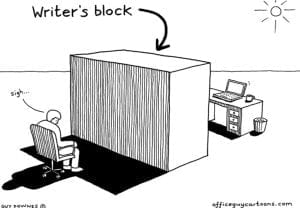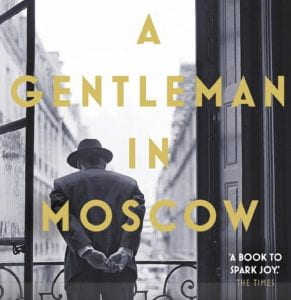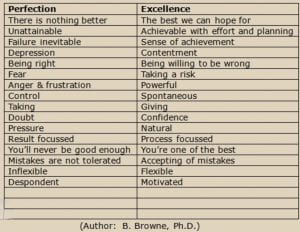 Martin Amis describes how he starts a novel and, in many ways, this gels with me too.
Martin Amis describes how he starts a novel and, in many ways, this gels with me too.
“The common conception of how novels get written seems to me to be an exact description of writer’s block. In the common view, the writer is at this stage so desperate that he’s sitting around with a list of characters, a list of themes, and a framework for his plot, and ostensibly trying to mesh the three elements. In fact, it’s never like that. What happens is what Nabokov described as a throb. A throb or a glimmer, an act of recognition on the writer’s part. At this stage the writer thinks, Here is something I can write a novel about. In the absence of that recognition I don’t know what one would do. It may be that nothing about this idea—or glimmer, or throb—appeals to you other than the fact that it’s your destiny, that it’s your next book. You may even be secretly appalled or awed or turned off by the idea, but it goes beyond that. You’re just reassured that there is another novel for you to write. The idea can be incredibly thin—a situation, a character in a certain place at a certain time. With Money, for example, I had an idea of a big fat guy in New York, trying to make a film. That was all. Sometimes a novel can come pretty consecutively and it’s rather like a journey in that you get going and the plot, such as it is, unfolds and you follow your nose. You have to decide between identical-seeming dirt roads, both of which look completely hopeless, but you nevertheless have to choose which one to follow.” [from The Paris Review]

 Martin Amis passes away, aged 73. A
Martin Amis passes away, aged 73. A  Simile (noun): a figure of speech involving the comparison of one thing with another thing of a different kind, used to make a description more vivid.
Simile (noun): a figure of speech involving the comparison of one thing with another thing of a different kind, used to make a description more vivid. 
 IMAGINATION IS THE SPARK that ignites a writer, and imagination incubates in the joys and sorrows of life. Imagination is loved by readers, who are taken to new locations, fresh relationships, and exciting discoveries.
IMAGINATION IS THE SPARK that ignites a writer, and imagination incubates in the joys and sorrows of life. Imagination is loved by readers, who are taken to new locations, fresh relationships, and exciting discoveries. Hello again. I was discussing some of the presentations at a recent writers conference with a good friend who attended. He brought up the notion of perfection in writing vs excellence. The aim was to have writers concentrate on excellence and not try to be perfectionists. Writers should feel safe to make mistakes and be innovative. Which then begs the question, what is excellence in writing? I’m not a 100% sure myself. Some say it’s the point where you cannot improve on the story, plot, characters, etc. I agree, but I’m going to stick my writer’s neck out and also suggest that the manuscript being submitted needs to be free of obvious errors, grammatical mistakes, etc. If it isn’t it will be a turn-off for any literary agent or, in the case of self-published work, a negative experience for the reader.
Hello again. I was discussing some of the presentations at a recent writers conference with a good friend who attended. He brought up the notion of perfection in writing vs excellence. The aim was to have writers concentrate on excellence and not try to be perfectionists. Writers should feel safe to make mistakes and be innovative. Which then begs the question, what is excellence in writing? I’m not a 100% sure myself. Some say it’s the point where you cannot improve on the story, plot, characters, etc. I agree, but I’m going to stick my writer’s neck out and also suggest that the manuscript being submitted needs to be free of obvious errors, grammatical mistakes, etc. If it isn’t it will be a turn-off for any literary agent or, in the case of self-published work, a negative experience for the reader. I value my Beta Readers. Like gold, they shine bright and their feedback is invaluable. A keen reader of thrillers – who has devoured over 30 books this year so far – has just finished my book. He was tasked with general feedback, rather than detailed analysis. The golden nugget for me was his comment that he felt the story only got flowing with the submarine action. This got me thinking about the sequence of chapters and made me realise that I could bring the underwater action forward. After some heavy cut-and-paste, this action now begins at Chapter 3 and the story is better paced and more engaging. My reader made a few other passing comments which has led to further tweaks and a better novel. This one made me smile;
I value my Beta Readers. Like gold, they shine bright and their feedback is invaluable. A keen reader of thrillers – who has devoured over 30 books this year so far – has just finished my book. He was tasked with general feedback, rather than detailed analysis. The golden nugget for me was his comment that he felt the story only got flowing with the submarine action. This got me thinking about the sequence of chapters and made me realise that I could bring the underwater action forward. After some heavy cut-and-paste, this action now begins at Chapter 3 and the story is better paced and more engaging. My reader made a few other passing comments which has led to further tweaks and a better novel. This one made me smile;